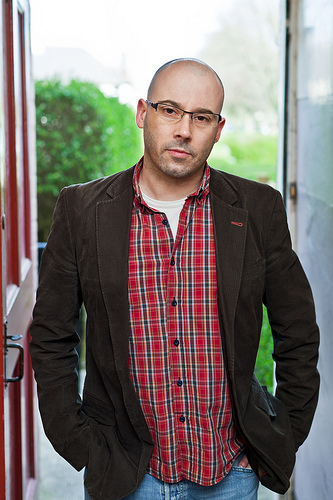During Banned Books Week last week, the PEN American Center featured an essay on the topic of book censorship and young adult readers by author Keith Gray. In his article, Gray talks about how he is frequently worrying about, not his teen readers, but the gatekeepers. Gatekeepers are basically any adult who might be on the road between the teen and a book, since by and large teens are assigned or gifted books, or take them out from the library.
If any one of these people takes the slightest offense, if the book cannot successfully navigate these gatekeepers, then somewhere along the way a gate closes shut. That book shall not pass! And my ideal reader may never discover that book I wrote with them in mind even exists.
It’s also possible I may never discover a gate has been closed either. So often these gates ease shut with a whisper, rarely ever with a clang.
How true — the only times a gate shut with a clang are when a dissenting parent, sharp librarian or student herself decides to speak up about the barriers between young people and a particular book, subject matter or genre. Or if a journalist happens to catch a whiff of it and decides to report on it. And that’s if a book is already in the hands of some teens and is removed; we’re not talking about policies which are concocted beforehand that would exclude entire subjects from consideration.
All of Gray’s questions are dead-on:
Are we scared they’ll not think the way we want them to if they read the wrong book? Do we not trust young people who can think for themselves?
There is such a high level of anxiety around the information that is accessible to teens, and so many believe that sheltering teens or presenting a more optimistic, affirming and sanitary world to them via media is a way to protect or respect their innocence and ensure they come out at the end as decent people. Gray points out that few criminals or delinquents cite challenging books as the inspiration behind their habits. On the contrary, many have difficulty reading any book, much less one about a challenging subject.
Gray talks too about the idea of book ratings, a discussion we’re very interested in, calling them “another gatekeeper by proxy.”
It’s a question of being honest about the world we live in and acknowledging that there is only so much one can do to shelter teens from real life events and that sheltering them ultimately wouldn’t serve them in the end.
If a child or teenager lives in a world where bullying, racism, suicide, faith, love, sex, terrorism are all everyday concerns, should we really be banning them from gaining knowledge of these issues? If a young reader is granted some access to that world from the relative safety of a novel, it could help them towards getting their heads around the issue long before they are forced to encounter such a thing in real life. These issues never get age-banded in the real world after all. Are we committing a disservice to the next generation under the guise of protection?

